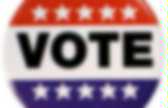

Socialism. Socialism is a range of economic and social systems characterised by social ownership and democratic control of the means of production,[10] as well as the political theories and movements associated with them.[11] Social ownership may refer to forms of public, collective or cooperative ownership, or to citizen ownership of equity.[12] There are many varieties of socialism and there is no single definition encapsulating all of them,[13] though social ownership is the common element shared by its various forms.[5][14][15] Etymology The origin of the term "socialism" may be traced back and attributed to a number of originators, in addition to significant historical shifts in the usage and scope of the word.
For Andrew Vincent, "[t]he word ‘socialism’ finds its root in the Latin sociare, which means to combine or to share. The related, more technical term in Roman and then medieval law was societas. History Early socialism Paris Commune First International Second International Early 20th century. United States. The United States of America (USA)—commonly referred to as the United States (US), America or simply the States— is a federal republic[10][11] consisting of 50 states and a federal district. The 48 contiguous states and the federal district of Washington, D.C., are in central North America between Canada and Mexico. The state of Alaska is the northwestern part of North America and the state of Hawaii is an archipelago in the mid-Pacific.
The country also has five populated and nine unpopulated territories in the Pacific and the Caribbean. At 3.79 million square miles (9.83 million km2) in total and with around 317 million people, the United States is the fourth-largest country by total area and third largest by population. It is one of the world's most ethnically diverse and multicultural nations, the product of large-scale immigration from many countries.[12] The geography and climate of the United States is also extremely diverse, and it is home to a wide variety of wildlife.
History. Libertarian Party (United States) Tonie Nathan, running as the Libertarian Party's vice-presidential candidate in the 1972 Presidential Election with John Hospers as the presidential candidate, was the first female candidate in the United States to win an electoral vote.[9][23] The 2012 election Libertarian Party presidential candidate, former New Mexico governor Gary Johnson, was chosen on May 4, 2012 at the 2012 Libertarian National Convention in Summerlin, Nevada.[26] "There Ain't No Such Thing As A Free Lunch" In 1972, "Libertarian Party" was chosen as the party's name, selected over "New Liberty Party. "[27] The first official slogan of the Libertarian Party was "There ain't no such thing as a free lunch" (abbreviated "TANSTAAFL"), a phrase popularized by Robert A Heinlein in his 1966 novel The Moon Is a Harsh Mistress, sometimes dubbed "a manifesto for a libertarian revolution".
The current slogan of the party is "The Party of Principle".[28] The porcupine is also a mascot of the Libertarian Party. Democratic Party (United States) Since the 1930s, the party has promoted a social liberal platform.[2][11][12] Until the late 20th century the party had a powerful conservative and populist wing based in the rural South, which over time has greatly diminished. Today its Congressional caucus is composed mostly of progressives and centrists.[13] History The Democratic Party evolved from the Jeffersonian Republican or Democratic-Republican Party organized by Thomas Jefferson and James Madison in opposition to the Federalist party of Alexander Hamilton and John Adams. The party favored republicanism, a weak federal government, states' rights, agrarian interests (especially Southern planters) and strict adherence to the Constitution; it opposed a national bank, close ties to Great Britain, and business and banking interests.
The Party came to power in the election of 1800. 1860s 1900s Modern era Electoral history Name and symbols "A Live Jackass Kicking a Dead Lion" by Thomas Nast. Republican Party (United States) History Founding and 19th century The first official party convention was held on July 6, 1854, in Jackson, Michigan. By 1858, the Republicans dominated nearly all Northern states. The Republican Party first came to power in 1860 with the election of Lincoln to the Presidency and Republicans in control of Congress and again, the Northern states. It oversaw the saving of the union, the end of slavery, and the provision of equal rights to all men in the American Civil War and Reconstruction, 1861–1877.[16] The Republicans' initial base was in the Northeast and the upper Midwest.
With the realignment of parties and voters in the Third Party System, the strong run of John C. Early Republican ideology was reflected in the 1856 slogan "free labor, free land, free men", which had been coined by Salmon P. Nevertheless, by 1890 the Republicans had agreed to the Sherman Antitrust Act and the Interstate Commerce Commission in response to complaints from owners of small businesses and farmers. The White House. What a Libertarian Is and Is Not. What a Libertarian Is - and Is Notby Sam Wells A libertarian is a person - any person - who consistently advocates individual freedom and consistently opposes the initiation of the use of coercion by anyone upon the person or property of anyone else for any reason.
(Coercion is here defined as any action taken by a human being against the will or without the permission of another human being with respect to his or her body or property. This includes murder, rape, kidnaping, assault, trespassing, burglary, robbery, arson and fraud.) Some libertarians (such as the late Robert LeFevre) not only oppose all forms of initiatory coercion, but also the use of retaliatory coercion (revenge or criminal justice). The vast majority of libertarians, however, maintain that physical force used in self-defense or defense of one's family or property is fully justifiable.